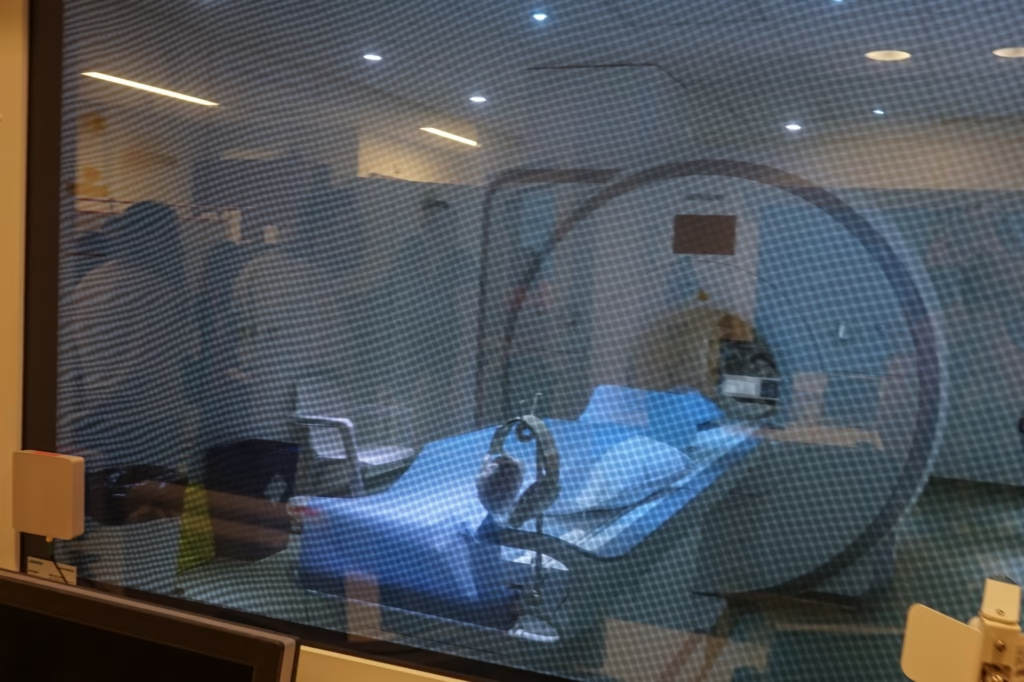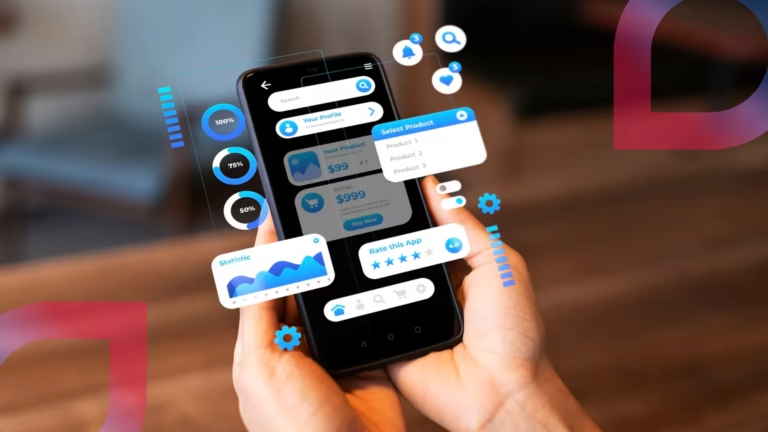
Introduction to Mobile Development in Healthcare
The healthcare industry is experiencing a significant transformation as it increasingly embraces digital solutions. The shift toward mobile development in healthcare has garnered considerable attention due to its potential to enhance patient care, streamline processes, and improve overall healthcare outcomes. Mobile applications have emerged as a critical tool for healthcare providers, patients, and organizations alike, enabling them to communicate effectively, access vital information, and manage healthcare tasks with ease.
With the advent of smartphones and mobile technology, healthcare practitioners can now monitor patients’ conditions remotely, share medical advice, and offer timely interventions through mobile platforms. Moreover, patients benefit from user-friendly applications that allow for appointment scheduling, medication reminders, and access to personal medical records, thereby fostering greater engagement in their healthcare journey. The shift towards mobile health (mHealth) applications signifies a growing recognition of the need for convenient, efficient, and accessible healthcare solutions.
However, the development of custom mobile applications for healthcare presents its own set of challenges. Compliance with regulations regarding patient data privacy, such as HIPAA in the United States, is paramount. Developers must also address the integration of diverse healthcare systems and ensure the security of sensitive information. Furthermore, user experience design is essential, as healthcare applications must cater to a wide array of users, including medical professionals with varying tech-savviness and patients from different demographics.
This landscape of opportunities and challenges highlights the importance of investing in bespoke mobile solutions. Players in the healthcare sector, such as Infotyke, are well-positioned to create applications that not only meet regulatory standards but also enhance user experience and functionality. Through case studies, we will explore how custom mobile development can effectively address the unique needs of various stakeholders within the healthcare industry.
Overview of Infotyke’s Expertise
Infotyke is a leading player in the realm of custom mobile development, focusing specifically on creating innovative solutions tailored to the healthcare industry. With a profound understanding of the unique challenges and requirements of healthcare providers, Infotyke aims to enhance patient care and streamline operations through its specialized mobile applications. The company’s mission revolves around leveraging technology to empower healthcare professionals and improve patient outcomes, while its vision is to be at the forefront of healthcare transformation through digital innovation.
The core values of Infotyke emphasize collaboration, agility, and an unwavering commitment to quality. By cultivating strong partnerships with healthcare clients, Infotyke ensures that its mobile solutions are not only technically robust but also aligned with the specific needs of end-users, such as doctors, patients, and administrators. This client-focused approach allows Infotyke to create applications that enhance the healthcare experience by improving communication, accessibility, and efficiency.
Infotyke employs cutting-edge technologies and methodologies in its custom mobile development projects. Utilizing agile development practices, the company can adapt quickly to changing requirements and deliver solutions that evolve with the healthcare landscape. Moreover, Infotyke’s team of skilled developers, designers, and healthcare experts collaborate closely to create applications that utilize the latest advancements in mobile technology, data analytics, and telemedicine.
The extensive experience gained from numerous healthcare case studies has solidified Infotyke’s reputation as a trusted partner in the sector. Through these projects, the company has demonstrated its ability to tackle complex challenges, such as integrating electronic health records, enhancing telehealth services, and creating patient engagement platforms. By focusing on scalability and usability, Infotyke continues to provide impactful mobile solutions that meet the dynamic needs of healthcare professionals and patients alike.
Case Study 1: Telehealth Application Development
One of the significant projects undertaken by Infotyke in the realm of healthcare is the development of a telehealth application that aimed to facilitate remote medical consultations and patient monitoring. The client, a mid-sized healthcare provider, sought a solution that could enhance patient access to healthcare services while minimizing their physical visits to medical facilities. With the growing demand for telehealth solutions, the client required a robust mobile application that could deliver real-time medical consultations, maintain patient records, and ensure utmost security of sensitive health data.
The development process initiated with comprehensive requirements gathering, where Infotyke collaborated closely with the client to outline key features. The application was designed to include functionalities such as video consultations, appointment scheduling, real-time messaging between patients and healthcare professionals, and prescription management. A significant challenge faced during the development was ensuring compliance with healthcare regulations such as HIPAA while integrating advanced features. This challenge necessitated the integration of a secure and scalable back-end architecture to protect patient data effectively.
Once deployed, the telehealth application significantly improved operational efficiency and patient care. Metrics indicated a 40% increase in patient consultations within the first three months, illustrating enhanced accessibility to healthcare services. Additionally, user feedback highlighted a marked improvement in patient satisfaction, with 90% of users reporting ease of use and positive experiences during their consultations. The seamless integration of features like prescription management and appointment tracking contributed to a more organized healthcare delivery process. The success of this telehealth application by Infotyke showcases how custom mobile development can revolutionize patient care within the healthcare sector, addressing both immediate needs and paving the way for future advancements.
Case Study 2: Medication Management App
The Medication Management App developed by Infotyke addresses a significant challenge faced by patients in ensuring timely and effective adherence to their prescribed medication regimens. Many individuals struggle with remembering dosages, times, and interactions between medications, which can lead to serious health complications. This case study illustrates how custom mobile development can provide effective solutions in the healthcare sector.
The initial problem identified by the client was a high rate of medication non-adherence among chronic disease patients, which negatively impacted their health outcomes and increased healthcare costs. By engaging with stakeholders, Infotyke recognized the need for a user-friendly application aimed at simplifying medication tracking while offering additional benefits such as reminders and educational resources about their prescriptions.
The final product features an intuitive user interface that allows patients to easily input their medication schedules. The app includes functionalities such as customizable alerts for taking medications, refill reminders, and the option to log and monitor health metrics relevant to their treatment plans. A well-designed dashboard provides a comprehensive view of the patient’s medication regimen, enhancing user experience through clear visual cues and easy navigation.
From a technological perspective, the app was built on an open-source framework to ensure flexibility and scalability. Key components of the app’s technological stack included React Native for cross-platform functionality, Firebase for real-time database management, and integrated APIs for secure patient data access. These choices facilitated seamless communication between patients and healthcare providers, promoting personalized care.
Success metrics indicated a substantial improvement in medication adherence rates among users. A follow-up study showed a remarkable increase in the percentage of patients taking medications as prescribed, revealing the substantial impact the app has had on patient health outcomes. Increased user acceptance was evidenced by positive feedback during user testing phases, culminating in a refined product aligned with user needs. This case study exemplifies the role of custom mobile development in revolutionizing healthcare delivery.
Case Study 3: Fitness and Wellness Mobile Platform
Infotyke successfully developed a comprehensive mobile platform focused on fitness and wellness, aimed primarily at health-conscious individuals and those looking to improve their overall lifestyle. The target demographic included millennials and Gen Z users who are increasingly prioritizing health and wellness in their daily routines. Recognizing the growing trend of mobile health solutions, Infotyke set out to create an engaging platform that not only promotes physical activity but also emphasizes community support and motivation among users.
The platform features an array of tools designed to track fitness metrics such as workouts, nutrition, and progress over time. It includes customizable workout plans tailored to individual fitness levels, allowing users to set realistic goals and track achievements efficiently. A vital aspect of user engagement lies in the interactive elements incorporated, such as community challenges, leaderboards, and the ability to connect with friends, which fosters a sense of accountability and social interaction among users. Furthermore, the application integrates daily health tips and wellness articles to educate users about various aspects of health maintenance.
Data analytics played a significant role in the development of this healthcare platform. Infotyke utilized advanced data tracking features that offered insights into user behavior and preferences, ultimately informing the ongoing refinement of the platform’s features. This integration not only enhanced user experience by offering personalized recommendations but also allowed for meaningful data collection that can contribute to broader healthcare trends and research.
User testimonials reflect the platform’s success, highlighting how it has positively impacted their fitness journeys. Feedback reveals that users appreciate the motivational aspects, the ease of tracking their progress, and the sense of community that the platform fosters. This case study illustrates how Infotyke’s focus on custom mobile development in the healthcare sector provides innovative solutions that resonate with users seeking to enhance their health and well-being.
Security and Compliance in Healthcare Mobile Apps
In the rapidly evolving landscape of healthcare mobile applications, security and compliance have emerged as fundamental pillars. With the increasing reliance on technology for managing sensitive patient information, it is imperative that developers adhere to stringent regulations designed to protect this data. Key regulations such as the Health Insurance Portability and Accountability Act (HIPAA) in the United States and the General Data Protection Regulation (GDPR) in the European Union set critical guidelines that healthcare applications must follow. Infotyke is acutely aware of these requirements and prioritizes compliance in their custom mobile development processes.
HIPAA mandates that healthcare providers and their business associates implement safeguards to secure electronic protected health information (ePHI). Simultaneously, GDPR emphasizes the rights of individuals when it comes to their personal data. Infotyke meticulously integrates these regulations into their healthcare mobile applications, ensuring that all development processes encompass the necessary security measures. This includes not only encryption of data at rest and in transit but also employing robust authentication protocols to prevent unauthorized access to sensitive information.
In addition to regulatory compliance, Infotyke adopts several practical measures to further enhance security within their healthcare applications. Regular security audits and penetration testing are conducted to identify potential vulnerabilities. The incorporation of advanced technologies such as artificial intelligence for threat detection further fortifies the security framework of the applications. Additionally, user education plays a critical role in mitigating risks, as users must understand the importance of safeguarding their own data within the app.
By embedding security and compliance at the core of its development strategy, Infotyke ensures that healthcare mobile applications not only meet regulatory standards but also foster trust among users. This commitment to data protection is essential as the healthcare sector continues to embrace mobile solutions in an increasingly interconnected digital environment.
User Experience (UX) Design Principles
In the realm of healthcare, the successful deployment of mobile applications hinges largely on the principles of user experience (UX) design. Infotyke emphasizes a user-centered approach that not only prioritizes functionality but also ensures a seamless interaction between the user and the application. This dedication to UX design stems from the understanding that users of healthcare applications often include patients and medical professionals, both of whom require intuitive navigation and accessibility to utilize the apps effectively.
Intuitive navigation is a cornerstone of effective UX design in healthcare applications. Infotyke applies this principle by designing interfaces that enable users to accomplish tasks with utmost ease. For instance, clear pathways through the application functionalities, combined with recognizable icons and familiar interface layouts, facilitate effortless user interaction. The intentional arrangement of features and information aids in reducing cognitive load, allowing healthcare providers and patients to focus on health management rather than the intricacies of the technology.
Accessibility is another foundational aspect of UX design that Infotyke rigorously adheres to. This principle extends beyond compliance with guidelines; it emphasizes creating applications that everyone, regardless of their abilities or limitations, can use. Infotyke employs adaptable design strategies, ensuring that features such as font resizing, voice navigation, and high-contrast color schemes are integrated. These enhancements are crucial, as they empower users with varying needs to access healthcare information effortlessly, thereby improving their engagement with the application.
Lastly, a commitment to user-centered design is evident through continuous feedback loops. Infotyke conducts user testing and utilizes case studies to refine their applications, ensuring they meet the real-world needs of users. By integrating user insights into the design process, the company successfully fosters user satisfaction and promotes active engagement, which are imperative in healthcare applications.
Future Trends in Healthcare Mobile Development
The landscape of healthcare is evolving at an unprecedented pace, driven by advancements in mobile technology. As the demand for accessible healthcare services grows, the future of healthcare mobile development is poised to be heavily influenced by emerging trends, including artificial intelligence (AI), telemedicine expansion, wearable technology, and advanced data analytics. These elements collectively aim to enhance patient experiences and streamline healthcare delivery processes.
One prominent trend is the integration of artificial intelligence in healthcare applications. AI is set to revolutionize the way healthcare providers interact with patients, from personalized treatment plans to predictive analytics that can foresee potential health issues before they arise. Custom mobile development that harnesses AI can lead to applications that not only provide valuable insights but also improve the efficiency of healthcare services. Infotyke is committed to staying at the forefront of this trend, ensuring that their solutions incorporate AI-driven capabilities that meet the evolving needs of healthcare providers and patients alike.
Telemedicine is another growing trend that has gained significant momentum, particularly following recent global health crises. As more individuals seek convenient and immediate healthcare solutions, mobile applications enabling virtual consultations and remote monitoring are becoming indispensable. Infotyke aims to expand its portfolio in telemedicine by developing user-friendly interfaces that facilitate seamless communication between healthcare providers and patients, promoting better accessibility and continuity of care.
Moreover, wearable technology continues to advance, providing new avenues to collect health data and monitor patient vitals in real-time. Custom mobile applications can integrate with these devices, offering users comprehensive health insights that enhance personal health management. Lastly, as healthcare becomes increasingly data-driven, the integration of advanced data analytics will allow for more informed decision-making, improving outcome predictions and personalizing patient care.
By aligning its future projects with these developing trends, Infotyke aims to enhance its healthcare solutions, ensuring they remain relevant and impactful as the industry continues to evolve.
Conclusion: The Impact of Custom Mobile Development on Healthcare
Custom mobile development has emerged as a transformative force within the healthcare sector, significantly reshaping how services are delivered and experienced. The case studies presented by Infotyke illuminate the multivariate benefits that tailored mobile solutions bring to healthcare organizations. These solutions not only enhance patient engagement but also streamline communication between patients and healthcare providers. As evidenced in various projects, customized applications improve the accessibility of healthcare services, making it easier for patients to manage their health proactively.
Through the implementation of bespoke mobile applications, healthcare providers can facilitate better monitoring of patient conditions, which in turn enhances clinician-patient relationships. Patients equipped with customized mobile tools can track their symptoms, adhere to medication schedules, and communicate with health professionals with unprecedented ease. This level of engagement fosters a sense of ownership in their health journey, ultimately leading to improved health outcomes.
Moreover, custom mobile development paves the way for greater operational efficiency within healthcare organizations. By automating routine processes and integrating essential data through tailored applications, healthcare providers can reduce administrative burdens and focus more on patient care rather than paperwork. This optimization encourages cost-effectiveness, allowing organizations to allocate resources more judiciously and enhance overall healthcare delivery.
As we look toward the future, the integration of mobile technology in healthcare is not merely a trend but a necessity. Organizations that embrace custom mobile development will not only remain competitive but will also be at the forefront of innovation in healthcare services. The time has come for healthcare organizations to recognize the potential of these tailored solutions and invest in custom mobile applications that can significantly enhance patient outcomes and operational success.








